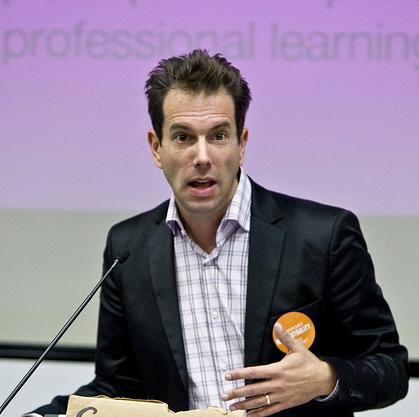Mark Lipton

Professor Mark Lipton currently supports Environment and Climate Change Canada (ECCC), Science Communication Division, in the pedagogical training of ECCC's science communication professional development program, designed for over 2000 scientists. As an educator, he strikes a balance between theory and practice by employing alternative pedagogical models from multidisciplinary perspectives. He taught both middle and secondary school and worked as a teacher/educator and supervisor; he also works as a curricula specialist in the areas of communication, media, curriculum design, pedagogy, and assessment. He is an advocate for media literacy and works with current media and technology to advocate for Ontario all public-school teachers.
The funded project PrivacyStories and its PrivacyBooth studies young adults' negotiations with digital privacy policies. Prior funded research, the Media Education Project, led to Ontario Ministry of Education curricular changes supporting media education for students K-12. He wrote an award-winning media literacy textbook Smoke Screens: From Tobacco Outrage to Media Activism; has written numerous monographs on topics including performance, privacy, pedagogy, media, and education; is a co-editor of Visualizing the Web: Evaluating Online Design from A Visual Communication Perspective; and author of Research, Write, Create: Connecting Scholarship to Digital Media (w/ T. Gibson).
Before coming to Guelph, Lipton directed the Media Ecology program at New York University, worked as a resource and site advisor for New York City public school teachers, taught at the Harvey Milk High School in New York City, held the Mellon Fellowship in Digital Humanities and Visual Literacy at Vassar College, and was the recipient of a Ford Foundation grant. He also spent time as the education director at the Children’s Media Project, a non-profit organization, where he led a team designing health promotion media literacy workshops. The New York State Department of Health and the Children’s Services Council of the United Way funded this multiyear research about health education, media literacy, and visual communication.
Mark Lipton is a Professor in the School of English and Theatre Studies at the University of Guelph. He also teaches in the Media Studies program at the University of Guelph-Humber. Ask him about his recent Art/Sci collaborations, his creative media production, research-creation. He supervises graduate students with interests in education, alternative ways of knowing, learning, and teaching; as well as studies in communication, media, popular/media cultures, science/technology, performance, improvisation, queer/LGBTQ+, embodiment, somatics, mobilities, abilities, everyday life, and media ecology.
Current Research interests
21st Century learning, Activism, arts-based research methods, audience studies and reader-response, Bodies, Boundary crossings, Camp, Communication, Community engaged scholarship, Culture, Decolonization, Digital divides, Digital knowledge production, Digital media, arts & performance, Digital policies, Digital storytelling, Education, Educational technology, Embodied Cognition, Embodiment and Movement, English education, Equity, diversity, inclusion in educational systems and practices, Feminist approaches, Gender/s and sex/es, GenEquity, Health, History of communication, Identity, Interpersonal neurobiology, Intersectionality,Learning, LGBTTIQ+ youth, Literacy, Media cultures and subcultures, Media Literacy, Media, Methodological Innovations, Pedagogy, Perception, Performance studies,Performance, Phenomenology,Politics and action, Privacy, Queer Theory, Rapidly changing media production tools and practices, Research Creation, Rethinking difference and the human, Semiotics, Sexualities,Social Inclusion, Social Justice and Praxis Orientations, Social Media, Surveillance, Trauma, Teaching, Technology, Technology/media users, the ‘Unsettling’ nature of change, Visual communication, Wellness, Writing across the curriculum.